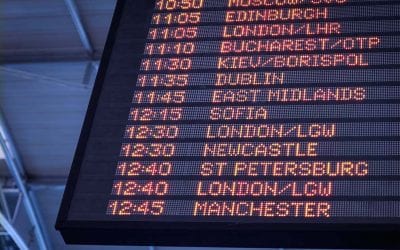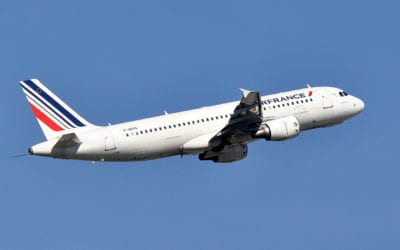Finally, after almost two years, the Department of Transportation (DOT) is getting ready to do what it should have done in the first place — allow Norwegian Air International (NAI) to freely operate transatlantic flights. The approval has been delayed at DOT because of airline and airline union coordinated double-speak.
When all is said and done, DOT should consider whether the new airline service is “in the public interest,” and whether the new service is legal under the terms of America’s Open Skies Treaty. In both cases the resounding answer is, “Yes.” Finally, the airlines can get a strong dose of what they claim makes the airline market work — competition.
The holdup of this approval at DOT has been caused by questionable tactics employed by airline unions claiming that Norwegian is offering substandard working conditions and lower pay. Plus, airlines claim that NAI will be flying under a “flag of convenience,” where taxes and regulatory law are favorable.
However, airline unions have not been loudly decrying the current airline labor contracts that see regional pilots getting paid close to minimum wage for flying planes between major airline hubs and smaller airports. Plus, have airlines, such as Delta Air Lines, decided to put their money where their mouth is and move their corporate headquarters from Delaware to Atlanta? Heck no. The corporate law in Delaware, not served at all by Delta, is too favorable.
Norwegian Air International will grow competition
The real reason for the delay has been avoidance of new transatlantic competition. There is a scramble by the US airlines to figure out a way to respond to NAI and its long haul, low cost model. Recently, it has been reported that Delta is considering transforming Virgin Atlantic Airlines into a long haul, low cost airline. And, anyone involved with airlines in America can be certain that United Airlines and American Airlines are making plans to do something along the same lines.
The sooner DOT gets the paperwork done with the approval of this application, the sooner American consumers can enjoy lower prices for transatlantic travel. The sooner the application is approved, the sooner the real airline games can begin.
The use of fuel efficient Boeing 787 aircraft makes travel between Europe and the US affordable and profitable. Some analysts are suggesting that the new service may bypass the slot controlled by major international gateways. NAI may offer direct service from airports that have been ignored by US carriers. Already, a sister airline of Norwegian Air International has begun service into Oakland, eliminating air traffic congestion at the San Francisco International airport. Get ready for more such routes.
Norwegian Air International service will grow US jobs
Is the new service “in the public interest”? Here, there is no doubt. Expanding international travel will provide thousands of jobs to airport workers, flight attendants (who will be hired and based here in the US), hotel and restaurant workers, Boeing, and many others associated with travel and tourism. Some of the pilots now flying at poverty wages for regional carriers may even have an opportunity to work for NAI. Wouldn’t that be sweet?
Preventing this transatlantic competition is costing the American public millions of dollars every day that service is delayed. The approval of this application will not only increase aviation jobs in the United States, but it will add dramatically to travel and tourism jobs here in the US.
It is not the job of Congress to protect a small clique of aviation union jobs and a non-competitive airline industry that has done all it can to mislead and deceive the flying public. It has also begun to treat its customers inhumanly — eliminating leg space, making seats narrower, eliminating service.
Plus, the increase in economic activity will improve the balance of trade — another benefit for the US. Norwegian Air International is one of Boeing’s biggest customers, incoming tourism dollars go right to the bottom line of our balance of trade, and our European Union allies all support the increase in transatlantic travel.
Basically, every sector of the travel stakeholder community that deals with travel and tourism supports the NAI application — local Chambers of Commerce, airports, travel agencies, tour operators, airport support workers, hotels, and rental car operators.
Travelers United applauds the planned approval of Norwegian Air International foreign carrier permit. The sooner the better.

Charlie Leocha is the President of Travelers United. He has been working in Washington, DC, for the past 14 years with Congress, the Department of Transportation, and industry stakeholders on travel issues. He was the first consumer representative to the Advisory Committee for Aviation Consumer Protections appointed by the Secretary of Transportation from 2012 through 2018.



